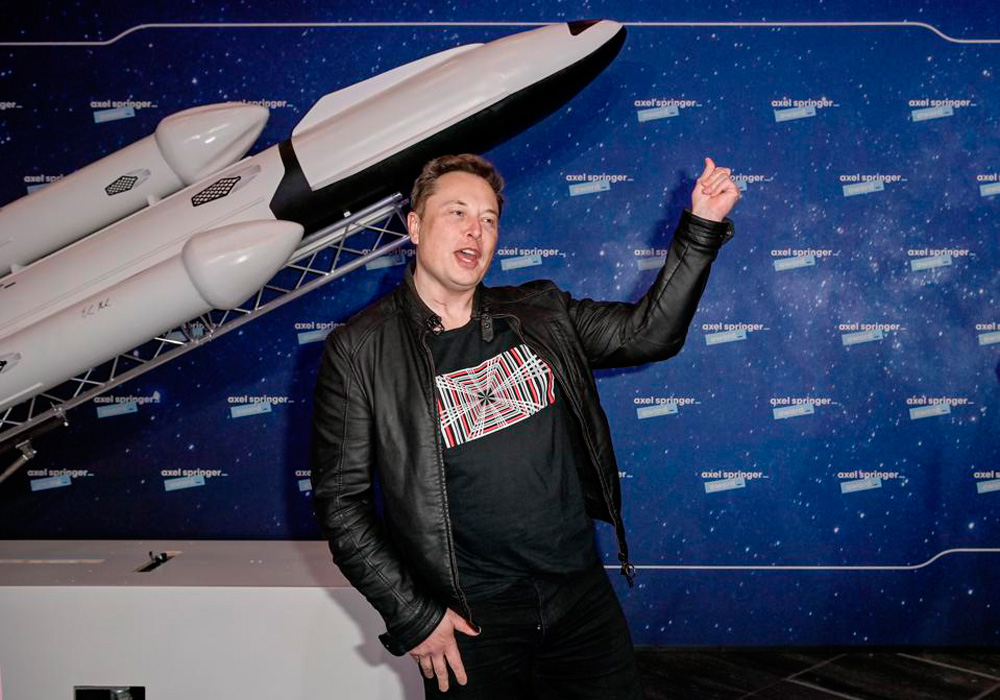Who is Glovo?
- This is the third article in a series of four paragraphs. It analyzes Glovo's business model and its relationship with the environment. Based on the statements made by the creators of Glovo, this article will allow us to imagine their vision of the world, and thus, we will try to give the keys to better understand the changes that are intended to be carried out in the Basque Country, in the surrounding states and throughout the world. Its ideology can be hard to understand in our context, but it has a new and dangerous political thought created in Sillicon Valley.

“To understand something, look at its beginnings and development.”
–Aristotle, precursor of the scientific method, basis of all Glovo justifications
Glovo Sacha was created in 2016 by Michaud and Oscar Pier. The media has been seduced over and over again by telling the same romantic story of its beginnings. It all started with a young dreamer who wanted to take anything at any time of the day. This is a story we've already heard, many of the companies that Glovo has as a model have similar foundational myths, like Apple or Google or Amazon, and they love to tell people: brave college students, stuck in their garages, created this and another new company, with few resources but a great idea. In no case will they say that the immense financial and social capital contributed by the privileged origins of these young people were essential in their beginnings.
This simple origin story hides reality: The Glovo was created in Catalonia, yes, but it has its real origin in the United States. It belongs to a group of high-impact companies that share the worldview, created by influential people. Many of us would regard it as worrying, if not fearsome.
Creators
Sacha Michaud is a British born in London. He entered the world of technological companies and created LatinRed, one of the most important websites in Spanish. He was later hired by one of the Uber CEOs, Niall Wass, at the Betfair company, the Internet betting house. Michaud has devoted decades to similar technological works: combining the limited responsibility of relying on platforms and technological resources has earned millions for its elderly. Sometimes in eccentric businesses – cheap sunglasses – sometimes morally arguable – betting services that encourage dependency. It is the one that can obtain investors for Glovo through its network of contacts and has enough experience to manage the company’s daily needs.
Oscar Pierre is a stereotype of the entrepreneur of Sillicon Valley, who has roundly denied it exists. He is a young dreamer of the company who fascinates both ordinary people and investors by explaining the positive impact that Glovo will have on society and its portfolios. Your business vision goes beyond “getting money.” It is what makes Glovo seem close: naïve, daring to difficulties, charming, full of the security of youth.
Origin
But there's more to it than it seems in the shadow. When they explain their ideas and objectives, both creators have the accent of Sillicon Valley’s language, it becomes clear that they are enthusiastic about the so-called “California ideology”. The followers of this ideology believe in community projects that improve society, always under the leadership of the all-powerful leaders, who enthusiastically support any change and who believe that the source of all conflict and inequality is the lack of communication, not the competing interests in the competition between classes and social groups.
If only the intention to connect people is taken into account, these businesses cannot only do no harm, but can also bring about improvements. But the issue is deeper than that. Investigating the political mindset of Sillicon Valley, Gregory Ferenstein found that, in the opinion of the owners of local tech companies, 50% of the wages of the entire society should benefit only 10% of society, and that, in his view, a true meritocratic economy “would not be entirely or totally fair.” They believe in equal opportunities, not in equal outcomes.
Michaud said Glovo’s criticisms of the conditions of his “self-employed” workers are “union nightmares”
In this world they want to create, the important thing is not “to give people what they deserve, but to maximise people’s contribution to society.” As market efficiency is a desirable objective, the best way to maximize this contribution is to create private entities led by uncontrolled and unpredictable leaders. These entities will then bring profound social transformations through their projects, for example: Facebook – “bringing everyone closer” – and Glovo – “extending the leisure of our users; offering the possibility to dedicate time to their family, friends or hobbies” –. Although they are in favour of closeness values, their actions have given rise to a new controlling class at global level, which on this occasion has a new and better justification.
Control
In an interview with an investment firm, Michaud explained the differences between the traditional distribution company that is usually contracted by this company and Glovo: “I think that your logistical needs depend on factors that are not in your mano.Hay many means that have nothing to do with you and you lose control. In the case of Glovo, the opposite happens. The ecosystem [created by Glovo] controls everything, you see? At a glance everything can be seen at every instant... This means that surprises [losses] are minimal. After all, we can see where the request is at all times.”
Glovo needs its own control system. Otherwise, it would not work, it could not guarantee a quality service to its customers. This need is not compatible with the vague relationship that Glovo intends to maintain with rider, but it is an indispensable condition for the business.
Denial of the conflict
According to traditional liberals, the government is an instrument to protect itself from the excesses of capitalism. However, according to the technologists or technologists of Sillicon Valley, there are no real conflicts, but misunderstandings. Consequently, the government should do no more than invest in innovative social projects. Anyone who wants to value or accept the existence of social conflict really only thinks about their selfish interests.
In a podcast interview, Michaud said that Glovo’s criticism of the conditions of his “self-employed” workers is “trade union chimera,” “because they fear losing their importance.” It seems that he really thinks that the unions want power by simple greed -- bad intent -- while Glovo wants the power -- good intent -- to build a better and more connected world.
For these entrepreneurs, a company like Facebook can solve the world’s problems “bringing everyone closer.” This thought shows the privileged lives that those who really believe in these kinds of simple fantasies have had.
Waiver of supervision
These kinds of companies see the government as a mere investor, not as a sponsor of the people, so they don't want to accept any oversight of it. In EE.UU, these companies are well-known for continually breaking the law, without any embarrassment.
On Twitter, Michaud said: “We can’t slow down the development of technology, but we can do new laws to make them have a fair and beneficial impact for everyone.” The Spanish President then manipulated the words spoken about the laws of self-employed workers: “[Con Sánchez] we fully agree, we have to reform the regulations to accommodate the new forms of employment relationship.” Glovo also believes that “the government can promote a public debate in favor of this in order to overcome the current complex phase.”
Basically, Michaud opposes the current law outright. According to his position, the Government and Glovo should begin to negotiate together new laws tailored to Glovo’s interests. Suppose I want to steal a store, which then declares that the phenomenon of theft is unstoppable, which explains to everybody, like the imbeciles, that in a world where I burglary laws are not appropriate and that, finally, I say that the government has to negotiate the new laws with me, which will make my theft legal.
Creative destruction and the religion of change
The most worrying factor in this phenomenon is “creative destruction”. Sillicon Valley’s famous motto summarizes this concept as follows: “Move quickly and break things.”
In his opinion, a company like Facebook can solve the world’s problems, demonstrating the privileged lives they have had
According to Sacha Michaud: “We think Glovo needs to expand quickly. Really. If we do not move quickly and expand, we are lost.” In other words, you learn with effort. This idea is good when it comes to learning journalism or carpentry, but not when it comes to reorganizing all sectors of the economy. This thinking does not take into account the possible unintended consequences or any consequences. Maybe Michaud and Pier really think that only with good intent will they improve the world.
The elements of Sillicon Valley’s above-mentioned philosophy bear a worrying similarity with the principles of Italian futurist entrepreneurs from the early twentieth century or Americans such as Henry Ford. The futurists believed in the power of technology and change, and they argued that in order to move forward, we had to break away from the past. They formed a privileged, sexist and racist elite, who believed that artists and technologists had the right to promote progress at all costs, creating “the speed and cult of violence.” In the end, they became passionate about the fascist dictatorships of the time.
Ideas change over time and something that seemed progressive can easily become a retrograde monster, if not built horizontally, democratically and equally. Now more than ever, the companies and projects we create are based on ideas, not products. These ideas must be carefully studied before the world becomes “broken”. We have
to relearn a lesson that was already quite clear at the time. Edward R. According to American journalist Murrow: “The solution to our problems will not be found in mere slogans; it is essential to understand it well.”
Reporting translated into Basque by Diego Pallés Lapuente
Telelana lan-antolaketa berri bihurturik da langile askorentzat. Koronabirusak hala beharturik, azken urteetan helburu zutena egunetik biharamunera errealitate bihurtu zaie numerikoaren sektoreko oligarkei. Jendea etxetik dabil lanean, internet bidez. AEBetako Silicon Valleyn... [+]























